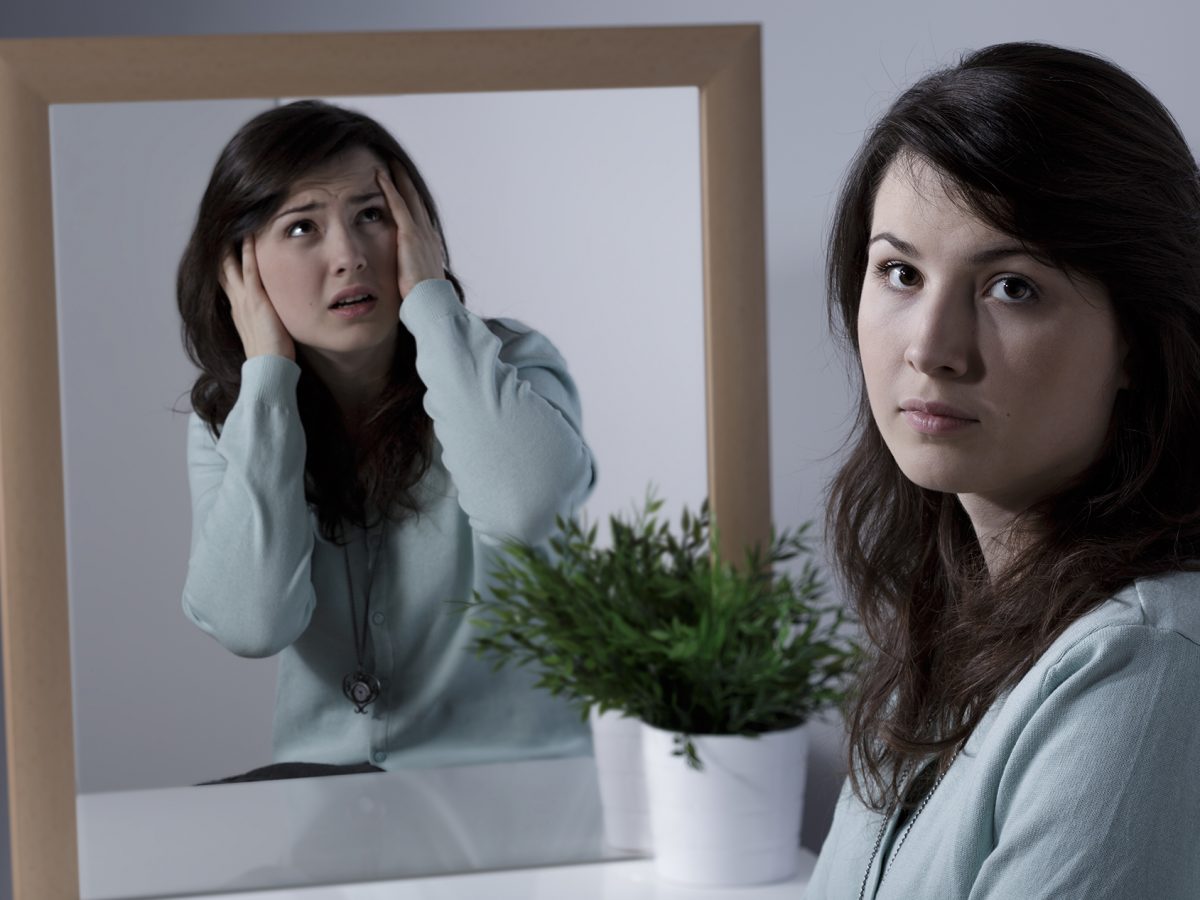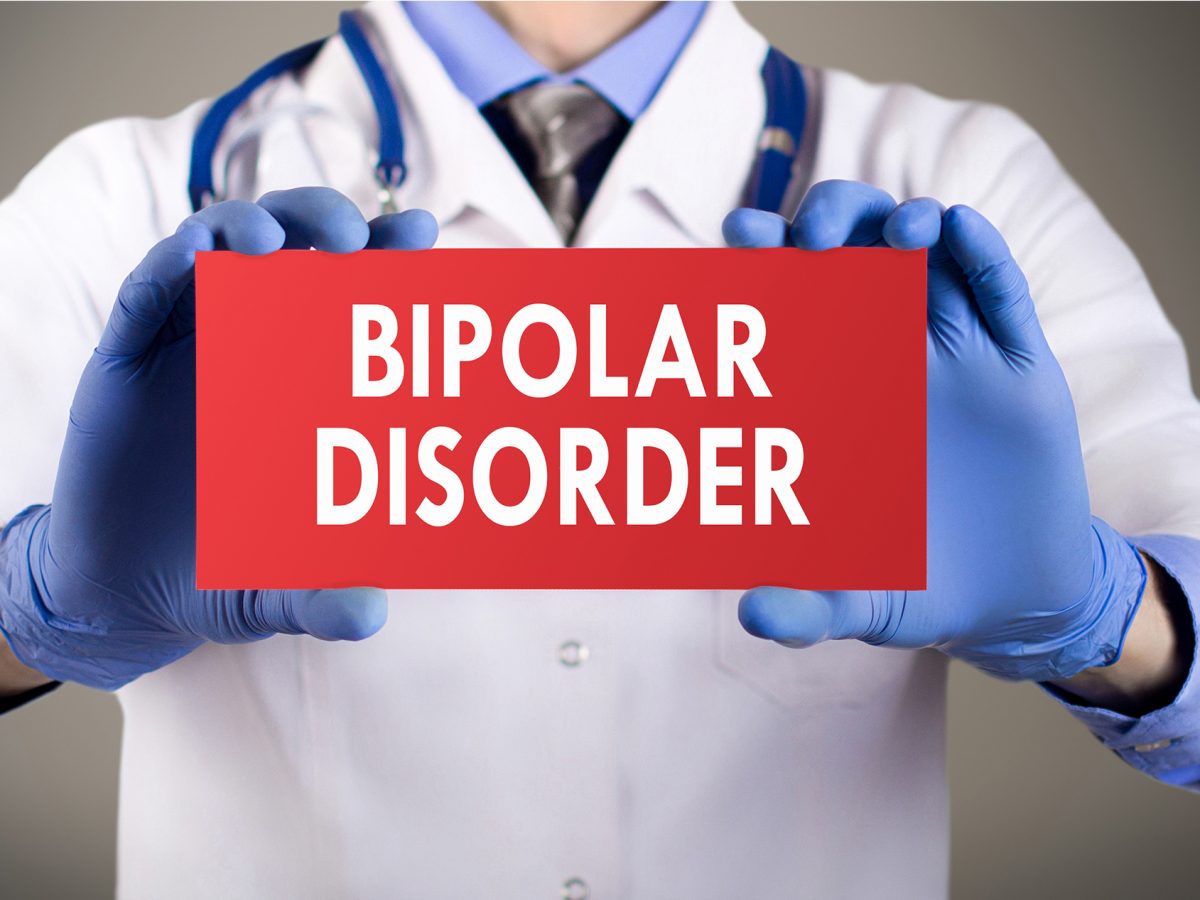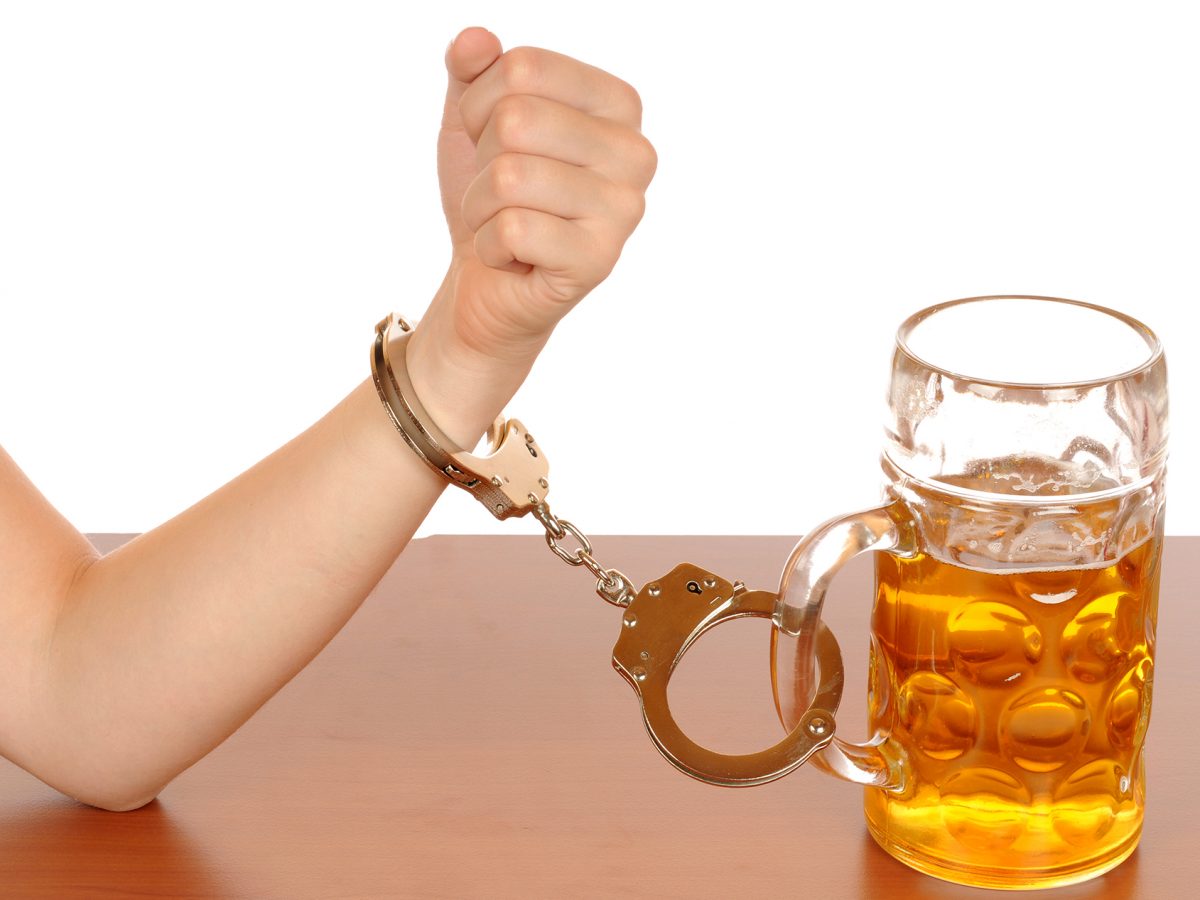Psychiatry
Schizophrenia
What is schizophrenia?
A disorder of the mind that affects how you think, feel and behave. Its symptoms are often called either ‘positive’ or ‘negative’. It is an illness which can be gradually progressive and can affect any gender, race, caste, socioeconomic status and any geographic location.
Signs and symptoms of schizophrenia
Early symptoms (prodrome )
It presents itself gradually and the initial symptoms could be behavioural changes which the near and dear ones of the person notices, like being withdrawn, spending a lot of time indoor, impaired attention and concentration, sleep disturbances, impaired socio occupational functioning and depressed mood.
You find it harder to concentrate – it’s more and more difficult to:
- finish an article in the newspaper or watch a TV programme to the end
- keep up with your studies at college
- keep your mind on your job at work.
Your thoughts wander. You drift from idea to idea – but there’s no clear connection between them. After a minute or two you can’t remember what you were originally trying to think about. Some people describe their thoughts as being ‘hazy’ when this is happening. When your thoughts are disconnected in this way, it can be hard for other people to understand you.
‘Positive’ symptoms
These are unusual experiences which should not be there.
Hallucinations
A hallucination happens when you hear, smell, feel or see something – but it isn’t caused by anything (or anybody) around you.. The commonest one is hearing voices.
They are false perceptions in the absence of a stimulus.
What do voices sound like?
They sound very real. They usually seem to be coming from outside you, although other people can’t hear them. You may hear them coming from different places, or they may seem to come from a particular place or thing. Voices can talk to you directly or talk to each other about you – it can be like over-hearing a conversation. They are often rude, critical, abusive or just plain irritating.
How do people react to them?
You may try to ignore them, talk back to them – or even shout back at them if they are particularly loud or irritating. You may feel that you have to do what they tell you, even if you know you shouldn’t. You may wonder if they are they coming from hidden microphones, from loudspeakers, or the spirit world.
Where do they come from?
Voices are not imaginary – you really do hear them – but they are created by the mind. Scans have shown that the part of the brain that ‘lights up’ when you hear voices is the same area that is active when you talk, or form words in your mind. The brain seems to mistake some of your thoughts, or ‘inner speech’, for voices coming from outside you.
The voices may comment on the person’s action continuously. (running commentary)
Two or more voices talking about the person usually derogatory in nature ( 3rd person auditory hallucinations)
Voice may talk directly to the person( 2nd person auditory hallucination) or give them commands which may be followed by the person .
It can sometimes feel like when you are trying to make a phone call in a very crowded and noisy place. The person can feel scared by these experiences and become withdrawn.
Other hallucination
You may see things that aren’t there, or may smell or taste things that aren’t there. Some people have uncomfortable or painful feelings in their body, or feelings of being touched or hit.
Delusions
A delusion happens when you believe something – and are completely sure of it – while other people think you have misunderstood what is happening. It’s as though you see things in a completely different way from everyone else. You have no doubts, but other people see your belief as mistaken, unrealistic or strange. If you do try to talk about your ideas with someone, your reasons don’t make sense to them, or you can’t explain – you ‘just know’. It’s an idea, or set of ideas, that can’t be explained as part of your culture, background or religion.
Delusion is a false belief, firm , fixed, unshakable and which is not cultural accepted .
example of delusions
‘Paranoid’ delusions
These are ideas that make you feel persecuted or harassed. They may be:
- unusual – it feels as though the government is spying on you. You may think that others are influencing you with special powers or technology.
- Feeling of being spied upon by using cameras
- Belief that your partner is unfaithful. (delusion of infidality)
- Feeling persecuted.
- Feeling that your thoughts are being known by others
- Feeling that your thoughts are being broadcast on the TV, radio and newspaper.
- Feeling that thoughts are being inserted and withdrawn from your brain
- Feeling that you have special powers, excessive wealth etc
- Feeling that people are plotting against and trying to harm them
- Feeling that they are controlled by others and external agencies
You feel that:
- your thoughts have suddenly disappeared – as though someone has taken them out of your mind;
- your thoughts feel as though they are not yours – it’s as though someone else has put them into your mind;
- your body is being taken over, or that you are being controlled like a puppet or a
Some people explain these experiences by thinking it’s the radio, television or laser beams, or that a device has been implanted in them. Other people blame witchcraft, angry spirits, God or the Devil.
Ideas of reference
you start to see special meanings in ordinary, day-to-day events. It feels as though things are specially connected to you – that radio or TV programmes are about you, or that someone is telling you things in odd ways, for example, through the colours of cars passing in the street.
‘Negative’ symptoms
- You start to lose your normal thoughts, feelings and motivations.
- You lose interest in life. Your energy, emotions and ‘get-up-and-go’ just drain away. It’s hard to feel excited or enthusiastic about anything.
- You can’t concentrate.
- You don’t bother to get up or go out of the house.
- You stop washing or tidying, or keeping your clothes clean.
- You feel uncomfortable with people.
People can find it hard to understand that negative symptoms are really symptoms – not just laziness. This can make it difficult for both you and your family. Your family feel that you just need to pull yourself together. You can’t explain that … you just can’t. Negative symptoms are less dramatic than positive symptoms, but can be really hard to live with.
Does everyone with schizophrenia have all these symptoms?
No you need not have all the symptoms. You can hear voices and have negative symptoms, but may not have delusional ideas. Some people with delusional ideas seem to have very few negative symptoms.
Psychiatrists use a definite set of criteria as given in the ICD-10 (international classification of diseases) or DSM -4 ( diagnostic and statistical manual) to diagnose schizophrenia.
Loss of “insight”
It feels as though everyone else is wrong, that they just can’t understand the things that you can. You feel that the problem is with the rest of the world, not with you. You do not believe that you have an illness. Hence it can lead to non compliance with medication and not visiting the doctor.
How common is schizophrenia?
It affects around 1 in every 100 people over the course of their life. It affects about 1% of the world population.
Who gets it?
It affects men and women equally. It affects any gender, race, caste, socioeconomic status and any geographic location.Women are affected later than men. These symptoms usually start in the early twenties .
What causes schizophrenia?
We don’t yet know for sure. It is probably a combination of several different things, which will be different for different people.
Stress-vulnerability-coping model best describes why people get schizophrenia.
Genes
Although only 1 in 100 people get schizophrenia, about 1 in 10 people with schizophrenia have a parent with the illness.
Twins
An identical twin has exactly the same genetic make-up as his or her brother or sister, down to the smallest piece of DNA. If one identical twin has schizophrenia, their twin has about a 50:50 chance of having it too.
Non-identical twins have a different genetic make-up to each other. If one of them has schizophrenia, the risk to the other twin is just slightly more than for any other brother or sister. These findings are much the same even if twins are adopted and brought up in different families.
| Relatives with schizophrenia | Chance of developing schizophrenia | ||
| None | 1 in 100 | ||
| 1 parent | 1 in 10 | ||
| 1 identical twin (same genetic make up) | 1 in 2 | ||
| 1 non-identical twin (different genetic make up) | 1 in 8 |
Certain chemicals called neurotransmittors in the brain are effected which causes the symptoms of schizophrenia. Dopamine and serotonin are the most common neurotransmittors implicated in the causation of schizophrenia.
Brain damage
Brain scans show that there are differences in the brains of some people with schizophrenia – but not in others. Where this is the case, it may be that parts of the brain have not grown normally because of:
- a problem during birth that stops the baby’s brain from getting enough oxygen
- a virus infection during the early months of pregnancy.
Drugs and alcohol
Sometimes, street drugs seem to bring on schizophrenia.
Amphetamines can give you psychotic symptoms, but they usually stop when you stop taking the amphetamines. We don’t yet know whether these drugs, on their own, can trigger off a long-term illness, but they may do if you are vulnerable.
It can be easy to use drugs or alcohol to cope with symptoms, but this usually makes things worse.
Cannabis
- The heavy use of cannabis seems to double the risk of developing schizophrenia. New research has shown that the stronger forms of cannabis, may increase this risk.
- It’s more likely if you start using cannabis in your early teens.
- If you have smoked it frequently (more than 50 times) during your teens, the effect is even stronger – you are 6 times more likely to develop schizophrenia.
Stress
Stress can precipitate an episode or worsen the symptoms of schizophrenia.
Family problems
Family problems does not cause schizophrenia but it can worsen the symptoms of schizophrenia. Hence therapy will be needed to prevent relapse.
Do people with schizophrenia become violent ?
A few people with schizophrenia do become violent – they usually hurt themselves but sometimes hurt other people. This can be caused by feelings of persecution or voices telling them to do it – often a combination of the two. It is much more likely if the person has used drugs or alcohol.
What is the treatment for schizophrenia ?
Schizophrenia is treated with medications and psychological treatments. Medications are the first line of treatment for symptoms of schizophrenia.
If you have the symptoms of schizophrenia for the first time, you should start medication as soon as possible.
You will have to consult a psychiatrist and he will put on one of the various medications called antipsychotics.
What are the medications for schizophrenia?
Psychiatrists will use one of the numerous medications avaiable for the treatment of schizophrenia. These medications are collectively called antipsychotics. Some of the antipsychotics are risperidone, olanzapine, clozapine,quitiapine, aripiprzole etc. For more details kindly look up the antipsychotic section of the website.
Why take medication?
Medication reduces the effects of the symptoms on your life. Medication should:
- reduce delusions and hallucinations gradually, over a period of a few weeks;
- help your thoughts to be clearer;
- increase your motivation and ability to look after yourself you
You will initially be adviced to see the psychiatrist once in 2 weeks ( sometimes 1 week) to monitor the effects and side effects of the medication . Medications will be increased on an average once in 2 weeks if the improvement is not optimal.
How well does medication work?
Majority of the patients who take medications in the correct dosage and adequate duration of time will see a reduction in the symptoms. Side effects of medications must be monitored at treated to improve the quality of life of the patient.
How long will I have to take medication for?
- Most psychiatrists will suggest that you take medication for a long time.
- If you want to reduce or stop your medication, discuss this with your doctor.
- Reduce your medication gradually. If you do this, you can notice any symptoms returning before you become really unwell again.
What happens when I stop taking medication?
The symptoms will usually come back – not immediately, but usually within 3 – 6 months.
Getting back to normal
Schizophrenia can make everyday life hard to deal with. This may or may not be due to the symptoms. Sometimes you may just get out of the habit of doing things for yourself. It can be difficult to get back to doing ordinary things like washing, answering the door, shopping, making a phone call or chatting with a friend. Hence it is advisable to maintain a regular daily schedule in spite of the illness and medication side effects.
Psychological (or talking) treatments
Cognitive Behavioural Therapy (CBT)
This can be done by clinical psychologists, psychiatrists or nurse therapists. It helps you to:
- concentrate on the problems that you find most difficult. These could be thoughts, hallucinations or feelings that you are being persecuted.
- look at how you tend to think about them – your ‘thinking habits’.
- look at how you react to them – your ‘behaving habits’.
- look at how your thinking or behaving habits affect you.
- work out if any of these thinking or behaving habits are unrealistic or unhelpful.
- work out more helpful ways of thinking about these things or reacting to them.
- try out new ways of thinking and behaving.
- see if these work. If they do, to help you use them regularly. If they don’t, to find better ones that do work for you.
This kind of therapy can help you to feel better about yourself and to learn new ways of solving problems. We now know that CBT can also help you to control troublesome hallucinations or delusional ideas. Most people have between 8 and 20 sessions, each lasting about 1 hour. To help the symptoms of schizophrenia, you may need to carry on with ‘booster’ courses from time to time.
Try to avoid things that make you worse, such as:
- stressful situations
- using street drugs or alcohol.
- disagreements with family, friends or neighbours.
Learn relaxation techniques.
Make sure you regularly do something you enjoy.
What are the other ways to reduce symptoms?
Along with medications the following can be tried to reduce symptoms
- spend time with other people
- keep busy
- listen to a personal stereo (TV and radio also work but may annoy your family or neighbours).
- remind yourself that your voices can’t harm you
- remind yourself that your voices don’t have any power over you and can’t force you to do anything you don’t want to.
Look after your body. People with schizophrenia have poorer health than others, so it’s worth looking after yourself:
- try to eat a balanced diet, with lots of fresh vegetables and fruit
- try not to smoke – cigarettes harm your lungs, your heart, your circulation and your stomach
- take some regular exercise, even if it’s only 20 minutes out walking every day. Regular vigorous exercise (double your pulse rate for 20 minutes 3 times a week) can help improve your mood.
Doesn’t schizophrenia make people dangerous?
People who suffer from schizophrenia are usually not dangerous. Any violent behaviour is usually sparked off by street drugs or alcohol. This is similar to the situation with people who don’t suffer from schizophrenia.
Although there is a higher risk of violent behaviour if you have schizophrenia, it is very small compared to the effects of drugs and alcohol in our society. People with schizophrenia are far more likely to be harmed by other people than other people are to be harmed by them.
Do patients with schizophrenia get better ?
One third of patients suffering from schizophrenia improve completely, 1/3 approximately have a few residual symptoms and are able to function resonable well but 1/3 of the patients have a gradual decline in their functioning with residual symptoms and they need assistance in life.



